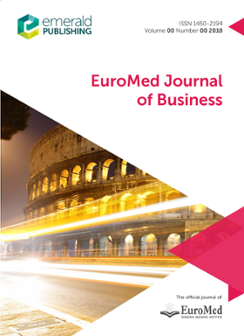股权集中度对CEO特征与真实盈余管理之间的关系有影响吗:来自乔丹的证据
IF 3.9
Q2 BUSINESS
引用次数: 4
摘要
目的本研究考察股权集中度对约旦首席执行官(CEO)特征和真实盈余管理(REM)关系的调节作用。设计/方法/方法使用2013年至2018年在安曼证券交易所上市的348家公司的年度观察数据运行driscoll - kraay回归。研究发现,driscoll - kraay回归表明,CEO经验、任期和政治关系改善了REM实践。当与CEO经验、任期和政治关系相结合时,所有权集中度会减少并限制快速眼动实践,因为这三者都与快速眼动有负向和显著的联系。研究局限性/含义最初的限制包括由于与CEO相关的参数较少,该研究缺乏普遍性。其次,对新兴市场理想评判模式持批评态度的人有一个可预见的缺陷。没有一个被普遍接受的模型是完美的。实际意义本研究的结论对行业参与者至关重要,包括公司、政策制定者、投资者和公众。这些发现将帮助投资者、从业者和监管机构理解,拥有高度股权集中度和经验丰富的首席执行官的企业具有更高的收益和较低的REM实践。社会意义本研究的发现对现有的知识体系具有乐观的影响。目前的文献还没有适当地考察股权集中度对CEO特征与em之间内涵的调节作用。原创性/价值。尽管在发达国家和发展中国家都有一些研究,但股权集中度几乎被忽视了。目前的研究可以填补早期研究的空白,使其成为一项新颖的研究。本文章由计算机程序翻译,如有差异,请以英文原文为准。
Does ownership concentration matter for the relationship between CEO characteristics and real earnings management: evidence from Jordan
PurposeThe current research inspects the moderation role of ownership concentration on chief executive officer (CEO) characteristics and real earnings management (REM) relationship in Jordan.Design/methodology/approachDriscoll–Kraay regressions were run using data from 348 firm-year observations for companies listed on the Amman Stock Exchange between 2013 and 2018.FindingsDriscoll–Kraay regressions demonstrate that CEO experience, tenure and political connections improve REM practices. Ownership concentration diminishes and limits REM practices when combined with CEO experience, tenure and political connections, since all three have a negative and significant link with REM.Research limitations/implicationsInitial constraints include the study’s lack of generalisability due to a small number of CEO-related parameters. Second, critics of the ideal model for judging EM have a foreseeable flaw. No generally accepted model is perfect.Practical implicationsThis study’s conclusions are crucial for industry participants, including companies, policymakers, investors and the general public. These findings will help investors, practitioners and regulators understand that businesses with significant ownership concentrations and experienced CEOs have superior earnings and low REM practises.Social implicationsThe findings of this study have an optimistic impact on the existing body of knowledge. The current literature has yet to properly inspect the moderation role that ownership concentration has on the connotation between CEO characteristics and EM.Originality/valueDespite several research studies in both developed and developing nations, ownership concentration has been almost virtually neglected. The current study could fill a hole in earlier research, rendering it a novel study.
求助全文
通过发布文献求助,成功后即可免费获取论文全文。
去求助
来源期刊

EuroMed Journal of Business
BUSINESS-
CiteScore
9.80
自引率
19.20%
发文量
61
期刊介绍:
The EuroMed Journal of Business (EMJB) is the premier publication facilitating dialogue among researchers from Europe and the Mediterranean. It plays a vital role in generating and disseminating knowledge about various business environments and trends in this region. By offering an up-to-date overview of emerging business practices in specific countries, EMJB serves as a valuable resource for its readers.
As the official journal of the EuroMed Academy of Business, EMJB is committed to reflecting the economic growth seen in the European-Mediterranean region. It aims to be a focused and targeted business journal, highlighting environmental opportunities, threats, and marketplace developments in the area. Through its efforts, EMJB promotes collaboration and open dialogue among diverse research cultures and practices.
EMJB serves as a platform for debating and disseminating research findings, new research areas and techniques, conceptual developments, and practical applications across various business segments. It seeks to provide a forum for discussing new ideas in business, including theory, practice, and the issues that arise within the field.
 求助内容:
求助内容: 应助结果提醒方式:
应助结果提醒方式:


